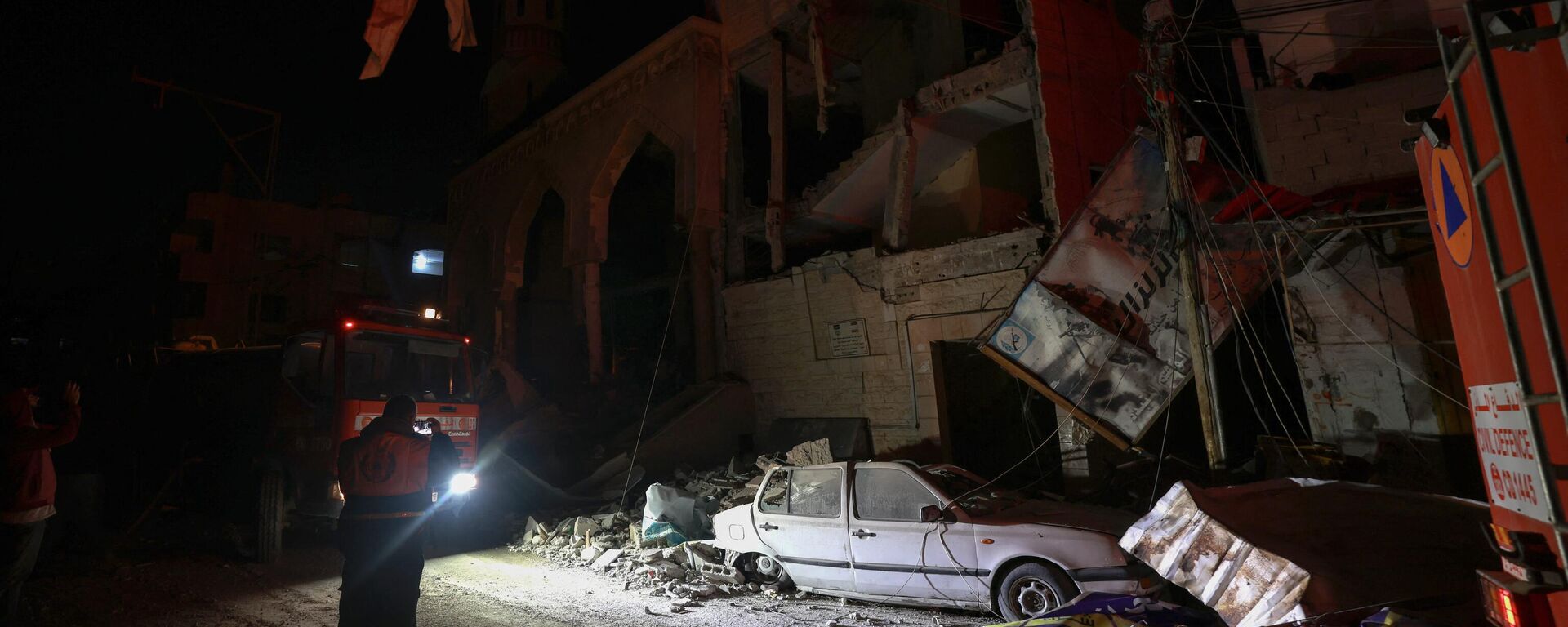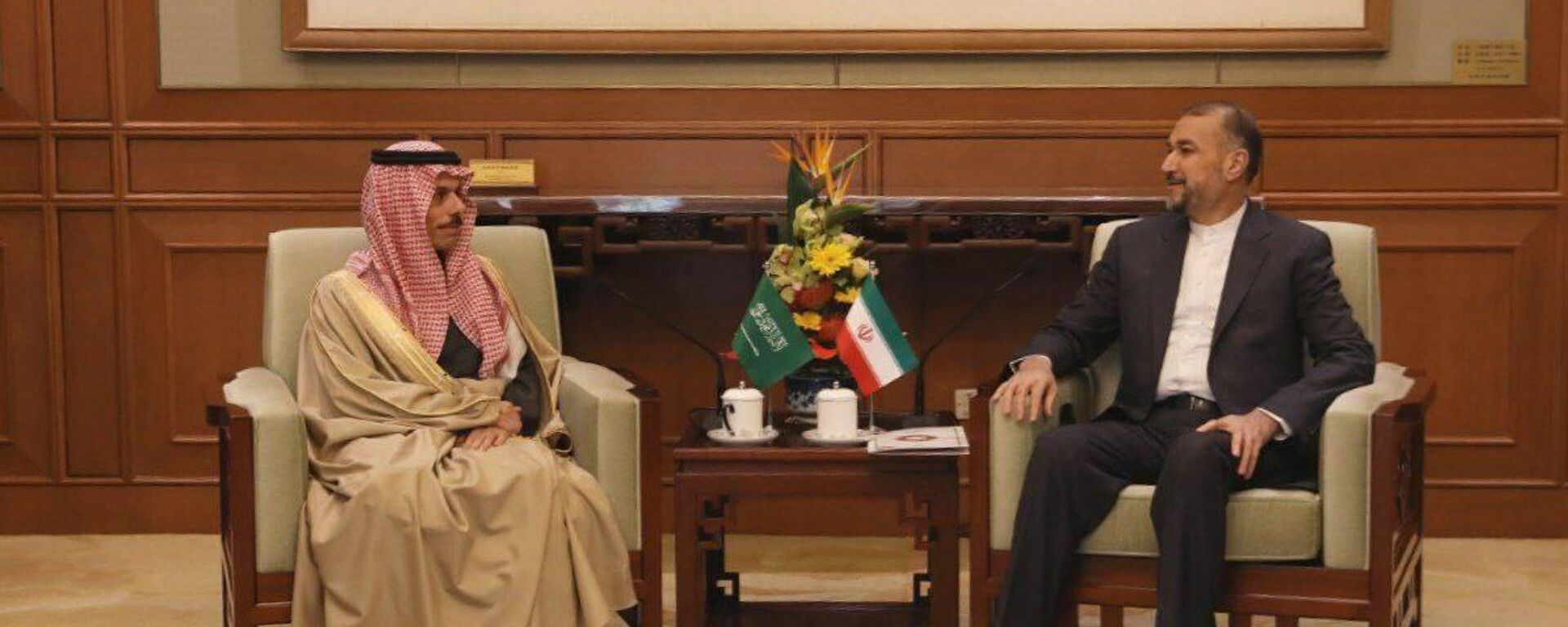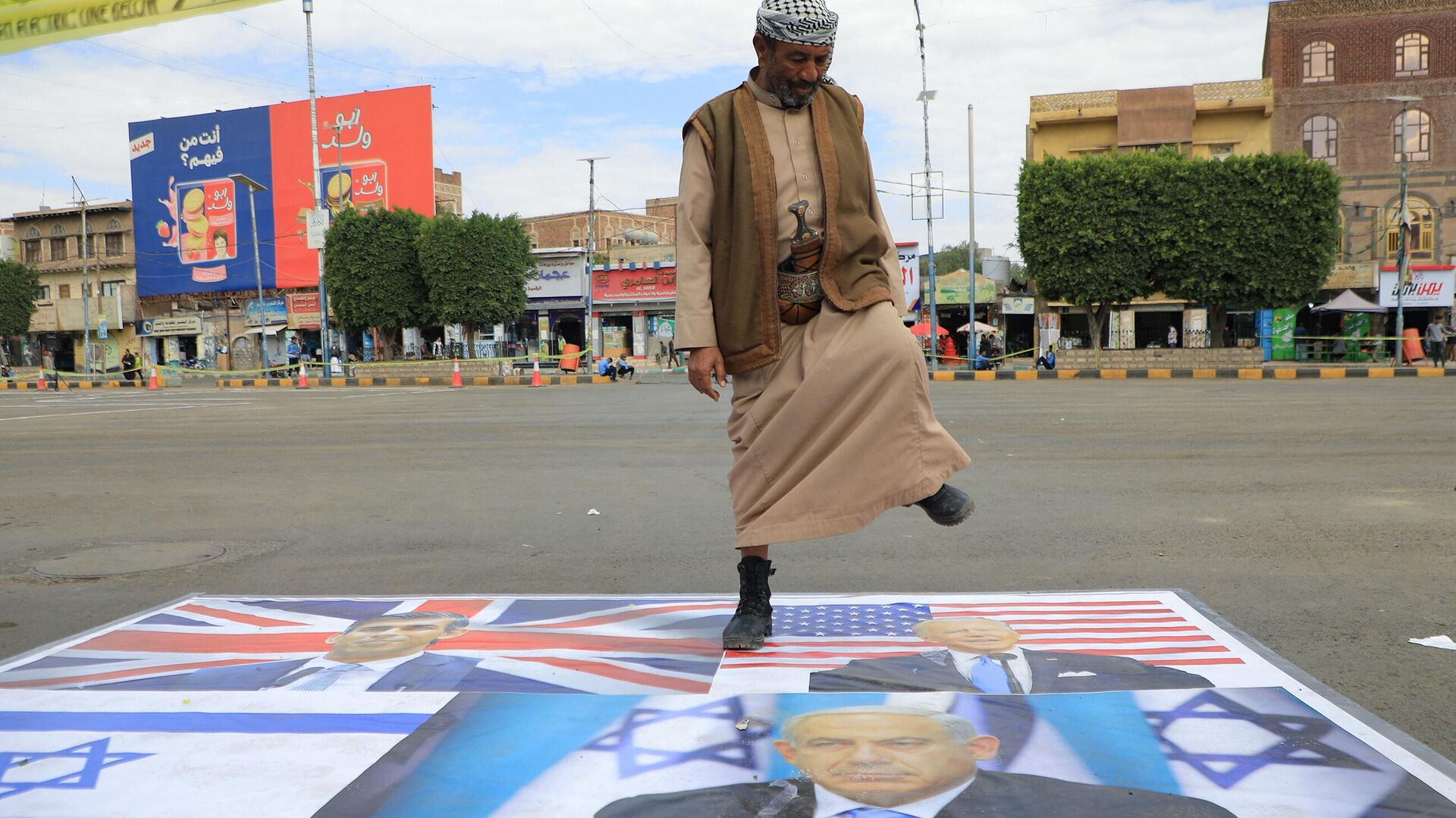https://sputnikglobe.com/20240217/diplomatic-cables-bidens-support-for-israel-has-poisoned-allies-attitudes-toward-us-1116849441.html
Diplomatic Cables: Biden’s Support for Israel Has Poisoned Allies’ Attitudes Toward US
Diplomatic Cables: Biden’s Support for Israel Has Poisoned Allies’ Attitudes Toward US
Sputnik International
The Biden administration has offered unequivocal support for Israel’s punitive operations in spite of international condemnation of Tel Aviv and calls for an urgent ceasefire. Top US allies in the Middle East have taken or threatened to take serious steps to distance themselves from Washington amid the crisis.
2024-02-17T18:14+0000
2024-02-17T18:14+0000
2024-02-17T18:14+0000
world
joe biden
benjamin netanyahu
us
israel
saudi arabia
state department
hamas
palestine-israel conflict
https://cdn1.img.sputnikglobe.com/img/07e8/02/11/1116849284_0:136:2595:1595_1920x0_80_0_0_6b022ff73ae4feb4118e36866579ab1f.jpg
US diplomats stationed in Middle Eastern countries have been sending warning signals to Washington about the lasting anti-American sentiment stirred up in the region thanks to the Biden administration’s stubborn support for Tel Aviv’s military actions in Gaza.The warnings, collected by the State Department over recent weeks and seen by ABC News, reportedly prompted a meeting between officials and US intelligence services to evaluate just how much damage had been done.A cable from the US diplomatic mission in Morocco, for example, indicated that pro-US “collaborators” in the Northwest African country felt that ties with the US were now “toxic” thanks to the “blank check” Biden gave Israeli Prime Minister Benjamin Netanyahu for Israel’s Gaza operations.An anonymous official told the network that the issue has spread beyond the Middle East to other Muslim majority countries, including Indonesia. Meanwhile, the “enduring hit to US popularity” in the Mideast is said to pose a threat to US plans for post-conflict diplomacy, as well as Washington’s long-standing push for normalization with Israel.The diplomatic downturn abroad has also been matched at home, with the administration quietly reaching out to American Muslim communities in battleground states like Michigan amid fears that they could stay home come November instead of coming out to reelect Joe Biden.Biden’s handlers have sought to balance his comments on the Palestinian-Israeli crisis in recent weeks, but despite the posturing, the US is reportedly proceeding with plans to supply Israel with additional weapons, including Joint Direct Attack Munition (JDAM) guidance kits and bomb fuses, while simultaneously calling publicly for a temporary ceasefire.Washington’s duplicity has threatened to unravel decades of US diplomacy in the region. Last week, officials warned that Egypt is considering suspending its landmark 1978 Camp David peace agreement with Israel – the keystone to US normalization strategy.Meanwhile, the foreign ministers of former regional arch adversaries Saudi Arabia and Iran vowed on Friday to expand their bilateral cooperation, while jointly blasting Israel over its “crimes” against the Palestinian people in Gaza and the West Bank. Saudi Arabia welcomed Iran’s proposal for an emergency meeting of the Organization of Islamic Cooperation’s foreign ministers to stop Israel’s “genocide.”The latest escalation of the 75-year-old Palestinian-Israeli crisis began on October 7 after Hamas carried out surprise raids into southern Israel, catching the military off guard and taking hundreds of hostages. Over 1,450 Israelis and nearly 29,000 Palestinians in Gaza have been killed in the conflict to date, with some 1.9 million of Gaza’s 2.1 million residents displaced in the fighting.
https://sputnikglobe.com/20240215/evacuation-of-refugees-in-rafah-to-supposed-safe-zone-is-illusion---un-1116800553.html
https://sputnikglobe.com/20240217/us-prepares-to-supply-weapons-to-israel-despite-calls-for-ceasefire---report-1116841340.html
https://sputnikglobe.com/20240216/iran-saudi-arabia-inch-closer-to-military-cooperation-as-us-loses-grip-in-mideast---analyst-1116815201.html
israel
saudi arabia
Sputnik International
feedback@sputniknews.com
+74956456601
MIA „Rossiya Segodnya“
2024
News
en_EN
Sputnik International
feedback@sputniknews.com
+74956456601
MIA „Rossiya Segodnya“
Sputnik International
feedback@sputniknews.com
+74956456601
MIA „Rossiya Segodnya“
how have middle eastern countries responded to us support for israel, how is biden undermining us mideast policy, will us lose allies for supporting israel
how have middle eastern countries responded to us support for israel, how is biden undermining us mideast policy, will us lose allies for supporting israel
Diplomatic Cables: Biden’s Support for Israel Has Poisoned Allies’ Attitudes Toward US
The Biden administration has offered unequivocal support for Israel’s punitive operations in spite of international condemnation of Tel Aviv and calls for an urgent ceasefire. Top US allies in the Middle East have taken or threatened to take serious steps to distance themselves from Washington amid the crisis.
US diplomats stationed in Middle Eastern countries have been sending warning signals to Washington about the lasting anti-American sentiment stirred up in the region thanks to the Biden administration’s stubborn support for Tel Aviv’s military actions in Gaza.
The
warnings, collected by the State Department over recent weeks and seen by ABC News, reportedly prompted a meeting between officials and US intelligence services to evaluate just how much damage had been done.
A cable from the US diplomatic mission in Morocco, for example, indicated that pro-US “collaborators” in the Northwest African country felt that ties with the US were now “toxic” thanks to the “blank check” Biden gave Israeli Prime Minister Benjamin Netanyahu for Israel’s Gaza operations.
“Criticism of the US position has proven unshakable despite significant adjustments to US messaging to highlight the need to protect civilian lives,” the cable, marked ‘sensitive’, warned, complaining that US messaging about sending “aid into Gaza or diplomatic pressure for Israel to avoid civilian casualties” were falling on deaf ears in the Moroccan press. The Embassy’s social media accounts have been targeted by “waves of unfollows or negative and abusive comments,” according to the cable.
An anonymous official told the network that the issue has spread beyond the Middle East to other Muslim majority countries, including Indonesia. Meanwhile, the “enduring hit to US popularity” in the Mideast is said to pose a threat to US plans for post-conflict diplomacy, as well as Washington’s long-standing push for normalization with Israel.

15 February 2024, 13:48 GMT
US intelligence agencies reportedly believe the negativity will blow over in the long term, while State Department officials fear it could take up to a “generation” to reestablish frayed ties.
The diplomatic downturn abroad has also been matched at home, with the administration quietly reaching out to American Muslim communities in battleground states like Michigan amid fears that they could stay home come November instead of coming out to reelect Joe Biden.
Biden’s handlers have sought to balance his comments on the Palestinian-Israeli crisis in recent weeks, but despite the posturing, the US is
reportedly proceeding with plans to supply Israel with additional weapons, including Joint Direct Attack Munition (JDAM) guidance kits and bomb fuses, while simultaneously calling publicly for a temporary ceasefire.

17 February 2024, 09:16 GMT
Washington’s duplicity has threatened to unravel decades of US diplomacy in the region. Last week, officials
warned that Egypt is considering suspending its landmark 1978 Camp David peace agreement with Israel – the keystone to US normalization strategy.
Meanwhile, the foreign ministers of former regional arch adversaries Saudi Arabia and Iran vowed on Friday to expand their bilateral cooperation, while jointly blasting Israel over its “crimes” against the Palestinian people in Gaza and the West Bank. Saudi Arabia welcomed Iran’s proposal for an emergency meeting of the Organization of Islamic Cooperation’s foreign ministers to stop Israel’s “genocide.”

16 February 2024, 09:02 GMT
The latest escalation of the 75-year-old Palestinian-Israeli crisis began on October 7 after Hamas carried out surprise raids into southern Israel, catching the military off guard and taking hundreds of hostages. Over 1,450 Israelis and nearly 29,000 Palestinians in Gaza have been killed in the conflict to date, with some 1.9 million of Gaza’s 2.1 million residents displaced in the fighting.





